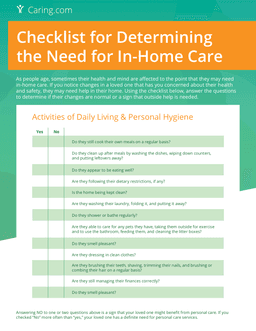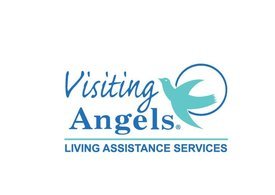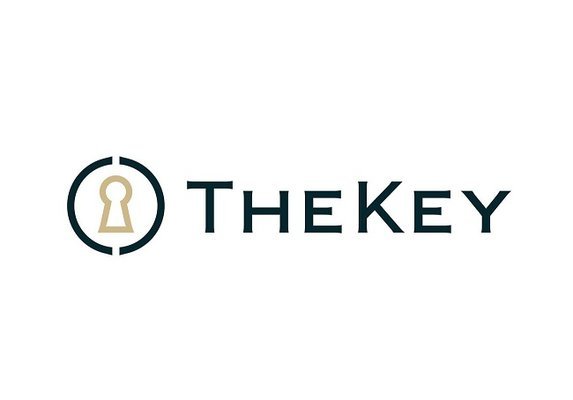The 10 Best Home Care Agencies for Seniors in Boise, ID for 2025
Caring.com offers a free service to help families find senior care and authentic reviews to help you in your decision. On average in Boise, ID, residents and their loved ones rate In Home Care agencies across the 25 options below.
Home Care Services in Boise, Idaho
25 Results
Filters
25 Results
"For nearly 20 years, TheKey—formerly Home Care Assistance—has delivered quality in-home care, supporting older adults with a wide range of n..."
READ MOREWhat you can do with Caring
Paying for Home Care in Boise, ID
The Cost of Home Care in Boise, ID
According to data from Genworth Financial’s 2021 Cost of Care Survey, the cost of home care in Boise is $763 a month higher than the national average of $4,957 for similar services. The average for the rest of Idaho is closer to Boise at $5,434 a month for equivalent care. Other cities in Idaho are fairly cost-competitive with the state and federal averages. Lewiston averages $4,576 a month for in-home care, while Twin Falls averages $4,767. Seniors in Pocatello pay an average of $5,339 a month for home care.
Boise
$5,720
Idaho
$5,434
The United States
$4,957
Lewiston
$4,576
Pocatello
$5,339
Twin Falls
$4,767
The Cost of Home Care vs. Other Senior Care Options in Boise, ID
In-home care may not be the first choice for some seniors in Boise. Depending on their needs and budgets, other types of senior living arrangements might be more appropriate. Home health care in Boise averages $5,720 a month, and includes light medical services performed by medical professionals. Assisted living includes both a room and care, while adult day health care involves daily travel to a community for services. A semiprivate room in a local nursing home costs around $8,608 a month for more medically intensive care services.
Home Care
$5,720
Home Health Care
$5,720
Adult Day Health Care
$2,167
Assisted Living
$3,586
Nursing Home Care (semiprivate room)
$8,608
Financial Assistance for Home Care in Boise, ID
Given the high cost of in-home care, many people use one or more forms of financial assistance to cover the expenses. Below, we explain some of the most common sources of financial help for paying for in-home care. If none of these options are available to you, you can reach out to your Area Agency on Aging or Aging and Disability Resource Center to learn about local resources.
- Long-Term Care Insurance: Long-Term Care Insurance covers expenses related to senior care, including in-home care. Depending on the policy type, beneficiaries may receive a cash payment to use towards long-term care or reimbursement for qualifying long-term care expenses. Note that there are limitations- typically a maximum benefit of $150 per day- and exact coverage terms vary depending on the exact policy, so always check the details.
- Medicare: Medicare does not cover in-home care because it is classified as custodial, or non-medical, care. However, some Medicare Advantage and Medicare Supplement plans, which offer expanded benefits, may cover in-home custodial care.
- Medicaid: Medicaid coverage of in-home care varies between different states because it is not a federally mandated benefit. Currently, all states cover some in-home care either through their standard Medicaid or a waiver program. The specific coverage rules are set individually by each state.
- Veterans’ Benefits: The Aid and Attendance benefit is a monthly cash payment that beneficiaries can use to pay for senior care, including in-home care services. To qualify for A&A, Veterans must already receive the VA pension and meet several additional requirements, including needing assistance with the activities of daily living.Contact the Department of Veterans Affairs to learn more.
- Reverse Mortgages: Home Equity Conversion Mortgages (HECMs) are federally insured loans that are available to homeowners age 62 and over. Reverse mortgages allow you to access a portion of your home’s equity in cash, tax free. Many seniors use reverse mortgages to finance their care expenses, including in-home care. Note that although there are no monthly payments due on reverse mortgage loans, borrowers do have to repay the loan once the last surviving homeowner passes away, moves, or sells the home.
Free & Low-Cost Home Care Resources in Boise, ID
Seniors in Boise can get help to live on their own with a comprehensive aging-in-place plan as well as resources to help them thrive. Below are several free local resources to help seniors remain safe and independent in their own homes. Contact the agencies themselves for information about eligibility and the application process.
| Resource | Contact | Service |
|---|---|---|
| Area Agency on Aging: Southwest Idaho | (208) 898-7060 | The Area Agency on Aging: Southwest Idaho offers a variety of support services to help seniors aged 60 and over remain safely at home, delay or prevent admission to a nursing home, and stay connected with the larger community. Free services include transportation assistance for medical and personal trips within a limited area and nutrition support at several congregate meal sites in town. Food bank and clothes pantry services are available and agency staff can provide free referrals for legal aid, needs-based benefits programs and senior health services. Caregiver education, respite care and other in-home support services are also provided by agency staff. |
| Boise Financial Assistance | (208) 345-2820 | The city of Boise offers several programs to help financially needy residents keep up with their home utility bills and other expenses. Heating and electrical bill reduction and assistance are offered through the city office, as are leak detection and plumbing repairs. Hardship discounts of up to 30% are available for residents for up to 1 year and direct financial support of up to $100 is provided for residents with water bills they cannot pay. |
| Boise Home Improvement Program | (208) 570-6830 | The Home Improvement Loan Program is a city-sponsored home mobility and renovation service that seniors can use to bring their homes up to code and make necessary repairs and mobility-based modifications. Seniors who meet the program's income and homeownership criteria can ask for direct assistance with repairing or installing a roof, heating and cooling system installation and repair, installation of energy-efficient windows and doors, and upgrades to meet ADA standards for accessibility. Plumbing and electrical repairs are also paid for and may be prioritized on an emergency basis. |
| Metro Meals on Wheels | (208) 321-0031 | Metro Meals on Wheels uses volunteers to deliver freshly prepared hot meals to seniors who have difficulty shopping and preparing food for themselves. Volunteers also act as a daily check-in for seniors at risk of becoming isolated at home. |
Determining Your Loved One’s Need for In-Home Care
Aging can be a difficult process, and loved ones may not always ask for help – often times it’s up to their family to evaluate their need for help around the house. While no two situations are exactly alike, this checklist can help you and your loved ones determine when it’s time to start the search for a home care provider.


Guidelines for Talking About In-Home Care
If you’ve determined that your loved one needs the assistance of a care provider in their home, it may be time for a difficult conversation. Handled correctly, however, this process can bring a family together and ensure that everyone’s concerns are addressed. Use this PDF as a starting point to help the conversation stay as positive and productive as possible.





